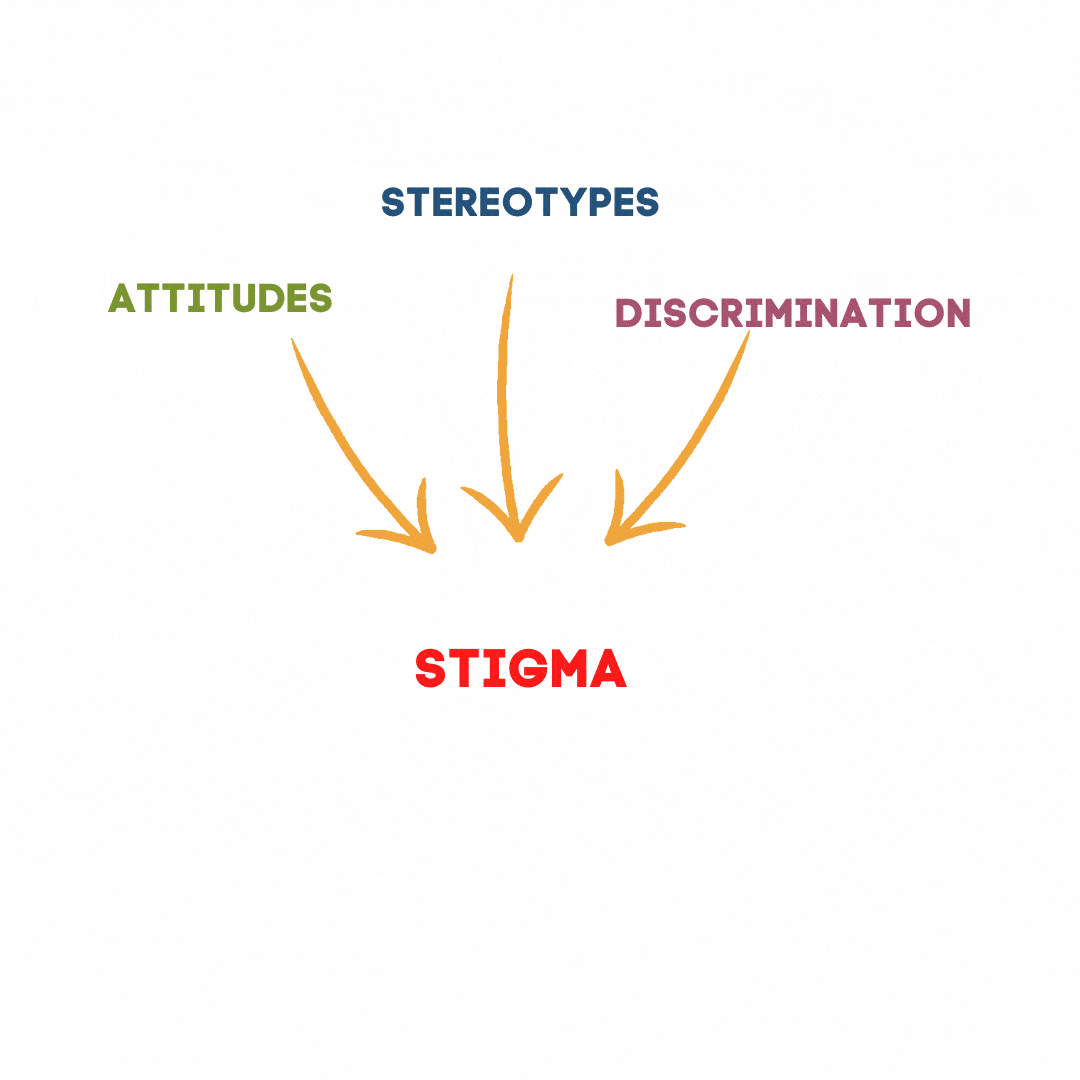What is Stigma?
So, you want to know what stigma is, eh?
Well, if you ask me, it’s kind of a weird word. I really don’t like it very much. I don’t like the way it looks or sounds, and to be honest, I don’t really even get what it means.
All I know is that it makes me feel super uncomfortable… Why should we care about stigma anyway? If we don’t talk about it, it will probably just go away, right?



What is Stigma?
Okay, you got us! That wasn’t really a definition of stigma, but it DOES show the way that it can make people feel and act.
Let us explain…
Stigma is one of those BIG concepts that includes things like: negative attitudes, stereotypes, and discrimination against an individual, a group of people or around a certain topic.

What is Stigma?
In this case, we’re talking about stigma against those living with mental Illness and around the topic of mental health in general.
Click on each drop-down list to learn more! about how stigma works!

Why Does Stigma Hurt?
Stigma is really harmful in a lot of ways because it can make the struggles someone is going through so much harder to deal with.

For example, do you think that any of the following would make it HARDER for someone struggling with their mental health to reach out for help?
- Fear of judgment
- Not knowing where to go for help
- Not knowing how to express what you’re going through
- Feeling unsure and scared of what you’re thinking/feeling
- Worrying you won’t be accepted by
- Feeling not sure or even hopeless that reaching out will help
- Hearing/being called stigmatizing terms like “crazy” or “weak” or “attention-seeker”
- Not being listened to or taken seriously
- Feeling alone: Not knowing anyone else going through what you’re going through
- Being told that mental illness doesn’t exist/isn’t important

BINGO. Stigma is the #1 reason that youth report NOT reaching out for help.
In fact, some people say that stigma can be worse than the illness itself.
Check out this quick video example made for youth, by youth about how stigma can make someone feel.
Stigma is something people will experience in different ways and in different parts of our lives based on who we are.
It can be hard to realize that stigma can come from anyone, like a friend, parent, family member or even a healthcare professional.
The thing we need to understand is that even if someone isn’t being hurtful on purpose, that doesn’t mean that no one is getting hurt.


What Can We Do About Stigma?
There IS something we can ALL do about stigma
- Education: Learn all you can about mental health, mental illness and different people’s experiences with it
- Language: The words we use can be powerful
- Normalize it! Make it NORMAL to talk about MH (pull from Morgan’s section on “the more we talk about it”)
- Contact: be open, get to know other people who are not like you – explain why
- Empathy and Allyship: Even if you are NOT experiencing what someone else is, be kind, compassionate and be on their team! That means being a good “ally”.
- Speak out: Join and/or support groups (esp. youth leadership groups) that are making real change. Sometimes stigma can seem too big to deal with, but always remember, you are not alone and there ARE other people who are passionate about mental health too!

ACTIVITY TIME: Myth vs. Fact
There’s a lot of inaccurate info and beliefs floating around about mental health and mental illness. We encourage you to keep learning and educating yourself, but to start, see how you do on our MH myths vs. facts quiz!

Ready to Keep Going?
Wow look at you go! Now that you’re a champ at recognizing stigma & its effects let’s move on to learning how to build healthy habits to continue supporting ourselves and others!


